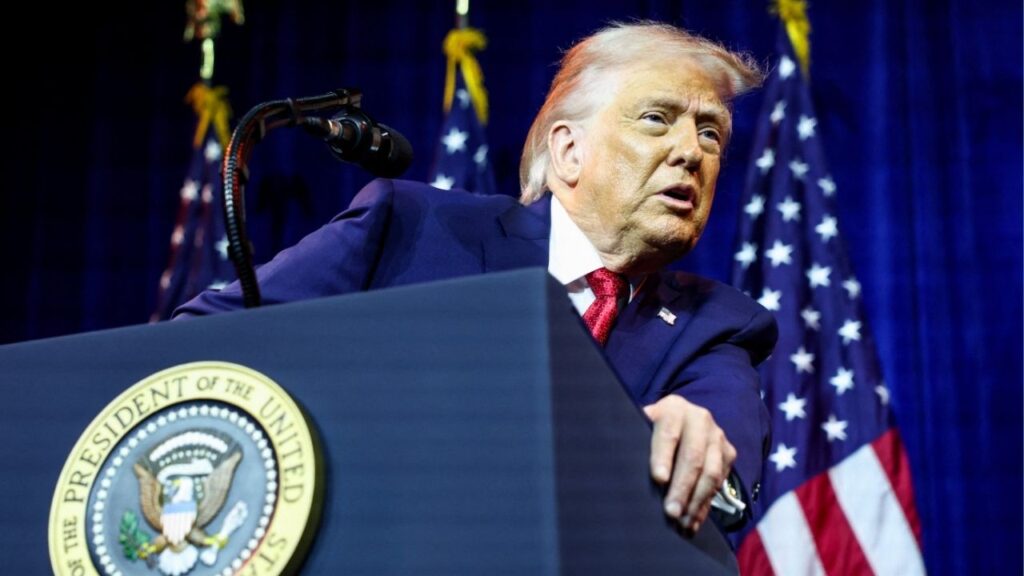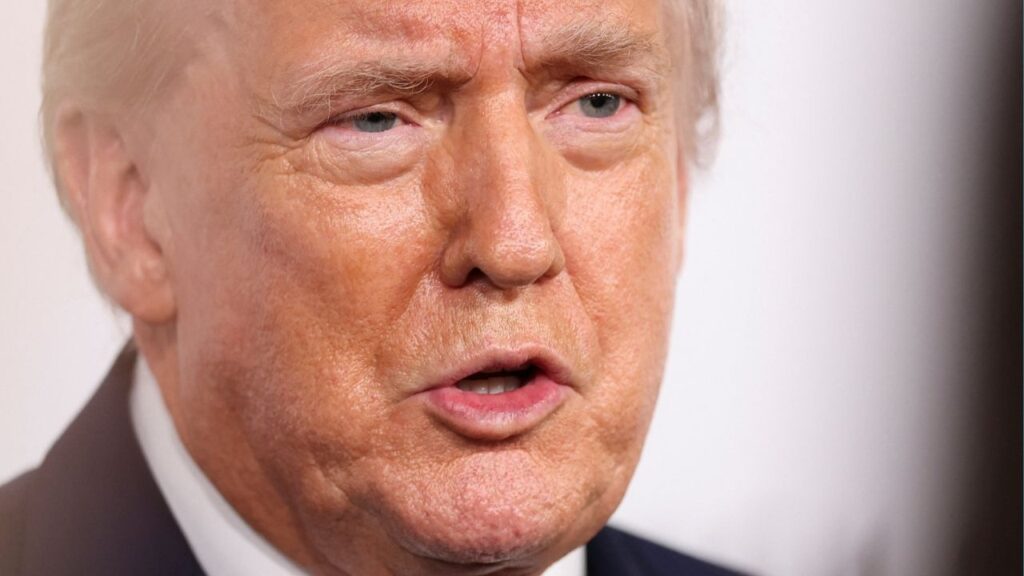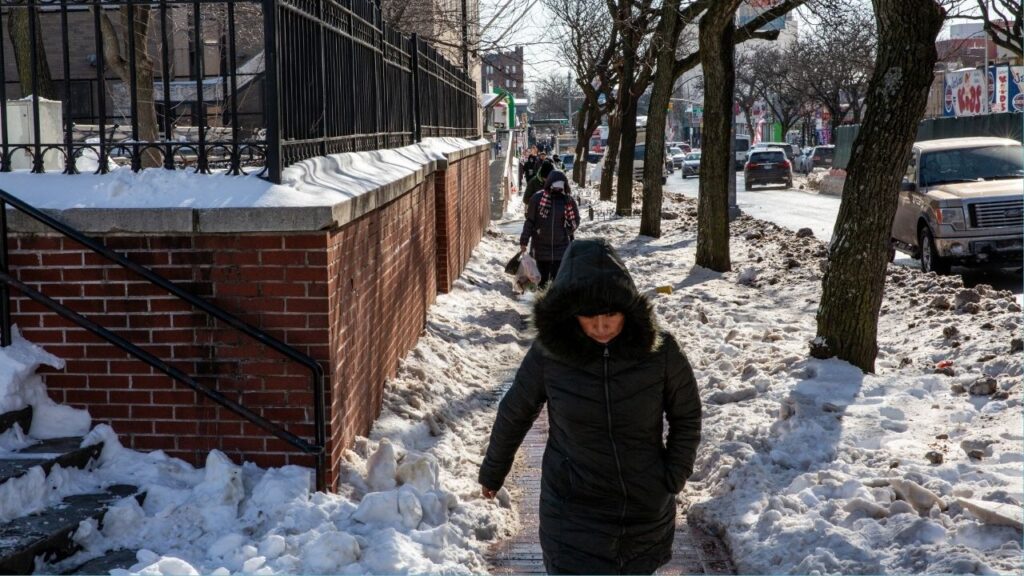
- Harris must highlight Trump’s potential to use executive power to undermine reproductive rights if re-elected.
- Harris should emphasize how Trump's judicial appointments could shape abortion access, including potential restrictions on abortion-related travel.
- Harris must argue that states' rights alone won't protect reproductive freedoms under a second Trump administration.
Share
|
Getting your Trinity Audio player ready...
|
Opinion by Mary Ziegler on August 15, 2024.
KAMALA HARRIS SHOW VOTERS WHAT DONALD TRUMP COULD DO IN A SECOND TERM.
Protecting reproductive rights is one of Democrats’ strongest issues, and their ability to capitalize on it may decide a tight election. Chances are even better now with Kamala Harris, a candidate known for her unapologetic positions on the issue, at the top of the ticket.
And yet Democrats have not fully capitalized on this apparent advantage. Though Donald Trump was responsible for appointing the Supreme Court justices who were crucial in striking down Roe v. Wade — a campaign promise that thrilled parts of the electorate and dismayed others — in this election cycle he seems to have avoided the ire of many voters because he insists a second term won’t matter much to reproductive rights one way or another, especially in states that protect abortion access.
Related Story: Presented With Rise in Border Crossings, Kamala Harris Chose a Long-Term ...
The reality is that a second Trump term — or a first Harris term — could fundamentally change Americans’ reproductive lives and health. With Ms. Harris formally introducing herself to voters as the Democratic presidential nominee next week at the party’s convention, now is the time to make the case for what she could do — and what Mr. Trump might — over the next four years.
It will not be enough to blame Mr. Trump for abortion bans already on the books or to warn that he wants to pass a nationwide ban. Ms. Harris, like President Biden, has vowed to sign into law a bill “restoring and protecting reproductive freedom in every state.”
These messages are powerful, but they look to the past or point to possible futures that voters may dismiss as unrealistic — and thus inapplicable to their lives. Ms. Harris needs to drive home that in a post-Roe world, Mr. Trump would probably have unusual power to criminalize abortion. She must also convey that under a Republican administration, there would be no state in the country where reproductive rights would be absolutely secure. Furthermore, she has a chance to overcome a problem that plagued Mr. Biden’s campaign: explaining what could be done to expand reproductive rights.
Related Story: ‘Republicans for Harris’ Hold Virtual Rally With Over 70,000 ...
Ms. Harris, who has worked to connect Mr. Trump to Project 2025, the plan created by conservative groups and former Trump officials as a blueprint for the next Republican president, must remind voters that many key conservative proposals for reproductive rights in a second Trump administration would not require congressional approval. Mr. Trump, she must emphasize, could do a great deal of damage through the use of executive power alone.
Ms. Harris has begun to stress that a Trump Food and Drug Administration could remove mifepristone, a drug used in well over half of abortions, from the market or impose stiff new restrictions on it, as Project 2025 details — a move Mr. Trump spoke of approvingly during a recent news conference.
The Harris campaign must point out that, equally insidiously, a Trump Department of Justice might follow the suggestion of JD Vance and Project 2025 and seek to reinterpret the Comstock Act, a 19th-century obscenity law, as a backdoor national ban on abortion drugs and paraphernalia that could be used against doctors, drug companies and even the many thousands of women who receive abortion medication by mail or other common carrier.
Mr. Trump has for months tried to distance himself from Project 2025 and has refused to answer questions about how he might leverage the Comstock Act. His conservative allies see the act as a national law that would trump state-level protections, including those put in place by voters through ballot initiatives. Even travel to other states — long a safety valve for those in jurisdictions with abortion bans — may not offer safety or solution because a Trump Department of Justice could pursue prosecutions in every jurisdiction across the country.
Related Story: Americans Give Harris an Advantage Over Trump on Honesty and Discipline, an ...
Even if Mr. Trump has no immediate plans for action at the federal level, Ms. Harris should stress that a second Trump presidency would be transformative on the issue of abortion access because of what it would mean for the courts. The Supreme Court punted on two major cases on abortion in its 2023-24 term, one on access to mifepristone and one on access to abortion in health emergencies, but these questions may well return to the court. If any seats open during a second Trump term, he could fill them with justices further to their right.
Trump judges and justices could also be the ones to decide how to resolve conflicts between the states. Mr. Vance has suggested that there should be federal limits on abortion-related travel. Whether or not Mr. Trump would act to put any such limits in place, anti-abortion activists have threatened medical providers who mail abortion pills across state lines. Lawsuits from Texas, Alabama and Idaho will test the limit of states with bans to regulate travel to states where abortion is protected, by prosecuting the speech, thought and planning that leads to that travel.
That’s not just dark fantasy: Idaho and Tennessee have passed abortion-trafficking laws that could curtail travel, and conservative attorneys general like Steve Marshall of Alabama have argued that they can prosecute anyone who helps another person travel for abortion for conspiracy on the basis of actions taken within a state with a ban. These clashes are underway in federal courts, and more will no doubt follow. It is not hard to imagine how Mr. Trump’s judges — he appointed more than 200 during his term and could appoint many more in a second — will resolve them.
Related Story: Presented With Rise in Border Crossings, Kamala Harris Chose a Long-Term ...
Ms. Harris can also explain how Trump judges might approach the question of fetal personhood — the argument that from the moment an egg is fertilized, a zygote has rights to equal protection and due process under the law. The G.O.P. platform nods to the theory that the Constitution’s 14th Amendment already recognizes fetal rights, and prominent anti-abortion groups have called on the Supreme Court to hold that liberal abortion laws violate federal fetal rights.
Other activists have pushed for state rulings that in vitro fertilization violates the rights of embryos. During his administration, Mr. Trump nominated judges like Matthew Kacsmaryk in Texas, who sympathetically set out arguments for fetal personhood in his April 2023 decision on mifepristone, in which he ruled that the Food and Drug Administration’s approval of the drug was invalid.
Ms. Harris should note that she could transform the courts — and in doing so, open possibilities for protecting reproductive rights. Mr. Biden is on pace to see more federal judges confirmed than Mr. Trump. She might even have the chance to replace retiring conservative justices with jurists who believe that Roe v. Wade was rightly decided.
In his new campaign, Mr. Trump has consistently gestured to the importance of states’ rights, hoping to convince or reassure abortion-rights voters that state-level protections would shield them from the harshest effects of post-Roe abortion bans. That idea may hold sway in some critical states: Michigan passed a ballot measure protecting reproductive liberty. Pennsylvania’s State Supreme Court seems poised to recognize strong protections for reproductive rights, as does Wisconsin’s. Arizona and Nevada will consider ballot initiatives to protect reproductive liberty in 2024. That is why Ms. Harris must make clear to voters not only why they should distrust Mr. Trump’s supposed moderation but also why states’ rights wouldn’t be enough to protect them if he turned to the tools he would have in office to undermine those of even the bluest of states.
Related Story: ‘Republicans for Harris’ Hold Virtual Rally With Over 70,000 ...
As of now, many voters have not fully seen the realistic threat a second Trump presidency could pose to reproductive rights, especially in swing states. Ms. Harris, if elected, could do more than Mr. Biden to soften the blow of Roe’s overruling. It is time for the Democratic Party to show them how.
–
This article originally appeared in The New York Times.
By Mary Ziegler/Chris W. Kim
c. 2024 The New York Times Company
RELATED TOPICS:
Categories

Having an Issue With the Starbucks App? So Are Other Users


















